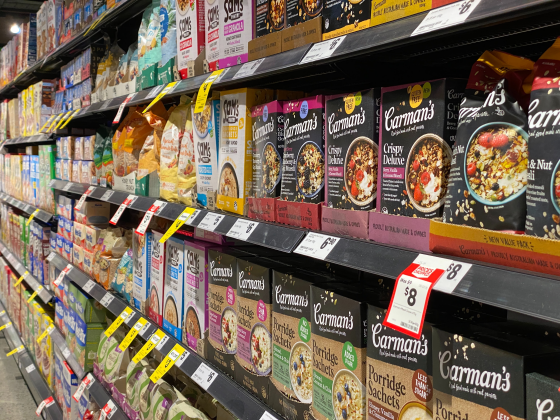He points out that dietary, health, and nutrition research is fundamentally twisted by corporate marketing.

Attention to healthcare is increasing worldwide, and various foods that are considered to be good for health, such as
Ultra-processed foods and the corporate capture of nutrition—an essay by Gyorgy Scrinis | The BMJ
https://www.bmj.com/content/371/bmj.m4601
In 2015, the New York Times revealed that Coca-Cola is funding the Global Energy Balance Network (GEBN), a non-profit obesity research organization. The purpose of GEBN is to show in research that 'sugar-containing beverages are not the cause of elevated obesity levels' and is believed to have been an organization for the promotion of Coca-Cola. It was pointed out that when Coca-Cola was severely criticized and stopped funding GEBN, it was closed, indicating that 'GEBN was established to promote Coca-Cola.' I am.

Many of the 'corporate scientific activities' are similar to those done by Coca-Cola, Scrinis said. Some companies that develop and sell food are engaged in 'scientific activities' such as conducting research activities, publishing articles in academic journals, sponsoring expert meetings, investing in research institutes, and providing nutrition education programs. Not a few, but the purpose is to use scientific knowledge to evaluate, promote, and justify our products.
Companies that develop foods called 'super-processed foods' are doing the same. In the first place, super-processed foods refer to industrially manufactured foods composed of a mixture of oil, fat, sugar, starch, protein, etc., and include additives such as artificial flavors, coloring agents, emulsifiers, and preservatives. In recent years, health problems such as association with
Coca-Cola, for example, used the energy balance model that scientists often use to explain weight gain and loss when explaining the harmlessness of sugar, but similarly, super-processed food developers are also existing mainstream. He is trying to appeal the harmlessness of his products by using the logic of nutrition.
Super-processed food development companies are also investing in nutrition research, but there is a bias in research because 'research results that benefit the company' are required. In addition, companies do not invest in research that may be badly evaluated for their products, so certain research may be ignored. In addition, companies wanting research results that benefit their products will focus only on specific foods and nutrients, such as 'how people consume food.' Patterns also tend to be ignored. It is also a big problem that this has been left unclear for a long time as to how social, commercial and ecological factors are related to human health.

So far, the content pointed out as a problem of super-processed foods has been discussed within the framework of 'nutrients' that there are too many specific substances such as salt, sugar, fat, saturated fatty acids, and trans fatty acids. .. However, as long as the discussion is within the nutrient framework, the solution cannot go beyond the nutrient framework. In other words, it is a solution in the direction of 'reducing too much specific nutrients'. Of course, such a solution is not meaningless, but on the other hand, this debate distracts us from the point of how many chemicals are used as additives in the manufacturing process of the product. I will.
As a matter of fact, a large amount of salt, sugar, oil, additives, etc. are added to super-processed foods to supplement the flavor and texture of foods that have deteriorated during the manufacturing process, and the content of these is reduced. Is said to be very difficult. Therefore, companies add synthetic sweeteners, flavors and textures instead of reducing the sugar, salt, oils and additives in question. Coca-Cola has been trying to claim the harmlessness of sugar for many years, but many companies in recent years have not taken this approach and honestly have taken steps to reduce the content of sugar, salt, etc. Behind this is the desire to avoid the government creating regulations that require significant improvements in product quality.
And unlike pharmaceutical companies, food companies cannot display clear disease prevention or health benefits on their packaging. Instead, nutrients such as protein, dietary fiber,

In this regard, in many countries, super-processed foods are also complicated by the fact that the benefits of the nutrients contained in them can be labeled on the packaging regardless of the nutritional value of the food as a whole.
For nutrition marketing, food companies are trying to commercialize many nutrients that are expected to be effective by scientific research, such as microbiomes and functional foods. Nestlé has published research showing that some heat-treated 'dead' probiotics are more beneficial to gut health than living bacteria, which has a similar purpose.
To eliminate the impact of these companies on nutritional research, Scrinis suggests that scientists, research funding, journals, and expert committees need to be more transparent and independent. Other options include clarifying the interests of journals and decision-making committees, denying scientists sponsorship from the food industry, and excluding industry-funded research in the development of government dietary guidelines. Also, creating a larger 'framework' that explains how health is related to social, commercial, and ecological factors, rather than focusing solely on nutrients, is what super-processed foods should be. It will lead to a review, Scrinis said.
Related Posts:







